T-Mobile / Sprint merger FAQ: What you need to know, updated April 2020
The deal is done and Sprint is now officially part of T-Mobile.
Despite all of the opposition and debate, T-Mobile has finally completed its purchase of Sprint. Whether this ends up being a good thing for the customer remains to be seen, but in the short term, the combined company under the T-Mobile name will be a real competitor for AT&T and Verizon, especially when it comes to 5G
Works on both networks
Samsung Galaxy S20+ 5G
Be ready for the full T-Mobile 5G network
The Galaxy S20 series of phones was the first to be announced with support for both the T-Mobile 5G network as well as Sprint. This phone also has a huge battery, great cameras, and a high-refresh display making it one of the best Android phones to date.
The corporate side
A long and slow ride
- How long until this affects customers?
- Will my service change?
- Will my coverage be affected?
- Will my plan change?
- Who's paying for this?
The technology
Dish Network
Should we be excited?
The corporate side
Is the deal done?
As of April 1, 2020, the deal is done and T-Mobile has completed its purchase of Sprint with John Legere stepping down as CEO to make way for Mike Sievert. Sprint is now officially a T-Mobile company and the two brands are joined under the name "The New T-Mobile" and will trade under the "TMUS" symbol. John Legere actually was initially planned to remain as CEO until April 30 but is moving forward ahead of schedule.
Is Sprint Gone?
T-Mobile estimates that it will take three years to fully complete the network integration and points to its successful purchase of Metro PCS as an example of how smoothly things will progress. Even so, the Sprint brand and service is slowly on the way out and will eventually fully become T-Mobile. For better or worse, your Sprint service and devices likely won't see any significant change for quite some time with Sprint stores even staying as they are for the time being. The eventual plan is that you could walk into any store and receive great service no matter which carrier you signed up with.
What is 5G for Good?
5G for good is an initiative being pushed by T-Mobile that would use the power of the Sprint and T-Mobile hybrid 5G network for the greater good. The greater good. With three parts, 5G for Good consists of the Connecting Heroes Initiative which would provide free 5G service to first responders. Project 10Million aims to provide students with a quality internet connection and T-Mobile Connect is a cheaper plan to help people get connected for a low cost.
Of course, this initiative is likely an effort to improve public opinion about the New T-Mobile but at least some good might come out of all of this.
A long and slow ride
How long until this affects customers?
No matter which carrier you use, you're probably not going to see anything different for quite a while. It's going to take a lot of time and work behind the scenes before the two networks will be able to function as one. In its merger FAQ, T-Mobile says that it's working on ways to make it easy for Sprint customers that wish to migrate to do so.
Many Sprint customers may have seen improvements in service thanks to a roaming deal that allowed Sprint customers to connect to T-Mobile towers in areas Sprint had a weak signal. This is not directly related to the merger but does show what may be possible in the short term when the two companies work together.
Will my service change?
There's the infrastructure to install or change, equipment that needs to be approved for use, and a lot of financing to be obtained before a single line is transferred to any all-new network. Expect everything to stay just the way it is until well into 2020 at the earliest. Depending on your device it may even be longer. While some newer devices will be able to make the transition to the new network more easily than older devices, T-Mobile will continue to operate both networks as-is for now.
As a T-Mobile customer, the short term gain here is a well-balanced plan for a 5G network rollout at scale. Sprint's spectrum assets only need an influx of cash to become the basis for a strong 5G proto-network and T-Mobile has a strange knack for making money as well as plenty of its own 600MHz spectrum. These short-term gains can't be ignored.
Will my coverage be affected?
For now, your coverage will remain the same. Some newer devices will technically be able to take advantage of both networks but there is a lot of work to get done on the back end before either Sprint or T-Mobile customers will see a boost. It's better to make sure everyone's calls and texts go through first.
T-Mobile has been offering Sprint customers roaming on its LTE network for a while and even increased capacity on March 14, 2020 allowing for some immediate quality-of-life improvements for Sprint customers.
5G coverage will likely benefit both sets of customers in the future as more devices can handle both networks but there haven't been any updates pushed to enable that extra access just yet. Owners of the Samsung Galaxy S20 series or the LG V60 ThinQ 5G will be the first to see improvements since T-Mobile has confirmed that both models can support T-Mobile's 600MHz spectrum and Sprint's 2.5GHz spectrum.
Will my plan change?
Your monthly bill will remain unchanged and in time may even go down. T-Mobile has committed to three years without increasing the cost of service and may even offer plans at a lower rate to customers. T-Mobile has promised regulators that it will not raise prices for three years after the merger. T-Mobile has also stated that it will continue to offer the benefits of certain Sprint plans, like Hulu and Tidal, and is working on additional benefits.
In time you will likely be ushered into a new plan with upgrade benefits but if you like your plan right now, you don't have to give it up. Not for a few years.
Who's paying for this?
Someone has to pay for a new T-Mobile 5G network and in the end that someone is you and me.
Someone has to pay for a new T-Mobile 5G-ready network. T-Mobile isn't going to eat the costs without passing them along and pricing is going to have to change somewhere. New 5G plans will have to be built in a way that turns a profit once billions are spent on the new T-Mobile network. I expect things to become very competitive in regard to pricing across the big three (sorry Dish) at first.
T-Mobile will also be able to offer new services like home internet over 5G to cover rural customers or customers in hard to reach places. Verizon has already done something similar to this with its 5G Home Internet service but T-Mobile will be much more flexible thanks to its vast reserves of spectrum across the country.
The technology
Is this all about 5G?
It may be more appropriate to say this is about the spectrum. The more devices you have connected and accessing data, the more spectrum you need. T-Mobile approximates it will have more than 400 MHz of spectrum available on average nationwide. Even with the increased efficiency of 5G, to keep download speeds high, as much spectrum as possible is needed.
T-Mobile with Sprint's spectrum assets can build a Sub-6 5G network that covers the majority of people in the US without a huge expenditure. In layman's terms, that means a T-Mobile network that has coverage similar to LTE with superior capacity and speed. As time goes on, further expansion into the millimeter wave spectrum can help keep speeds high in dense areas with crowded towers. This has already been demonstrated in the past in sports stadiums in the US.
T-Mobile has already shown what's possible with its low-band network in a fairly short period and, like T-Mobile's 600MHz deployment, Sprint's 2.5GHz expansion will also improve speeds for LTE customers.
Does T-Mobile need Sprint for 5G?
T-Mobile currently has 5G spectrum in the high-band at 28GHz and 32GHz as well as low-band at 600MHz. While 600MHz is great for coverage it won't be able to provide as much speed or capacity as mid or high-band 5G. Sprint's sub-6 (mid-band) 2.5GHz spectrum sits right in the middle with a good balance in coverage and speed.
T-Mobile has described the potential network as a layer cake.
With all three networks together, New T-Mobile will have a network that can be optimized for any kind of area with different geography and density. At some point, all carriers will be able to decommission sub-6 3G and 4G bands for use with 5G but Sprint is one of the only carriers ready to go today.
Dish Network
How does Dish Network fit in?
If everything goes as planned, Dish becomes the new Sprint: the fourth player in U.S. wireless providers. It's a distant fourth, though, as the top three will have well over 100 million subscribers each, have a huge advantage when it comes to spectrum and other assets, and the benefit of an existing customer base. Dish has a momentous climb to relevance even with the concessions made as part of the merger.
Where Dish has an advantage is a well-established entertainment network. A Dish-owned network has a turn-key option for Satellite TV, Home Broadband, and now Mobile Broadband packages much like AT&T or Verizon offer. That's a pretty big deal as an all-in-one package seems like a great value when we are shopping for any of those kinds of offerings. And Dish will be able to piggyback on T-Mobile's network for seven years, so it has plenty of time to find the right way to entice customers before it is forced to spend real money on a network.
More: Dish and Google could create a new wireless carrier
What does Dish get?
The newly formed company will sell off Boost Mobile, Virgin Mobile, Sprint's prepaid service and subscribers, and 800MHz spectrum assets to Dish Network, This would make Dish the de facto Sprint replacement and the fourth-largest carrier in the U.S. based on current subscriber counts. To help keep Dish's dreams alive, over 20,000 cell sites and retail outlets plus free access to the current T-Mobile network for seven years is also part of the deal. Dish is optimistic that it can be the new Sprint and be better than the old Sprint was, and with this kind of help, it might be able to make that happen.
That brings us to where we are today. We lose Sprint, gain Dish, and watch our government in action at the state level as the merger tries to wind its way through a dozen or so lesser courts. Love it or hate it, it looks like this is a done deal and that leads to what's most important for us: will this make a difference in our service or our monthly bill?
Can Dish really compete?
Still, the idea of Dish becoming a strong competitor and the current landscape of having four different choices staying in place is, well, a lie. Let's not mince words. Dish could pull this off and become a viable number four but as of today, it's the proud owner of 50 million or so Sprint prepaid network customers through all the concessions made. Going from that to a major player is no easy ride.
These hurdles seem a lot easier to jump if Google actually works with Dish to make it a competitive carrier, though my gut says the talks would simply create another Google Fi situation.
Should we be excited?
Is the world better without Sprint?
It's true that a merger is probably the only way Sprint doesn't go bankrupt. The company has hemorrhaged cash for so long it can't afford to follow its existing LTE roadmap, let alone work on a 5G roadmap that is economically feasible, so the options for the company look pretty bleak. Today, as a Sprint customer, this approval means you get to keep the service you have at the price you have instead of seeing the company chopped up and its assets auctioned off. Or worse — becoming a federally funded and controlled network carrier.
Is it worth it?
It's the long-term that worries me, though. Sprint, in particular, carved a current niche as a carrier that offers nationwide network family access at a fraction of the price of its competitors' offers. Someone with four or more lines on a Sprint unlimited family plan is paying less than most other carriers. For the individual, T-Mobile leads the industry when it comes to an affordable and robust unlimited network. In both cases, there are ways AT&T or Verizon outclasses the competition, but overall you get a good value from either Sprint or T-Mobile.
The new T-Mobile promised that this will continue, but there is no consumer model to keep them in check. Be honest — if you're unhappy with the service from T-Mobile, would you consider a "lesser" network from Dish or a more expensive network from Verizon as an apt replacement? What if pricing on plans inches closer and closer to AT&T's rates now that there is no viable budget carrier to keep things honest? Companies exist only to make a profit, and we should expect the new T-Mobile to do anything it can get away with to make that happen.
Taking away a choice has never made for more and better choices, and this will turn out no different, in my opinion.
Works on both networks
Samsung Galaxy S20+ 5G
Be ready for the full T-Mobile 5G network
The Galaxy S20 series of phones was the first to be announced with support for both the T-Mobile 5G network as well as Sprint. This phone also has a huge battery, great cameras, and a high-refresh display making it one of the best Android phones to date.
from Android Central - Android Forums, News, Reviews, Help and Android Wallpapers https://ift.tt/2JBNF24


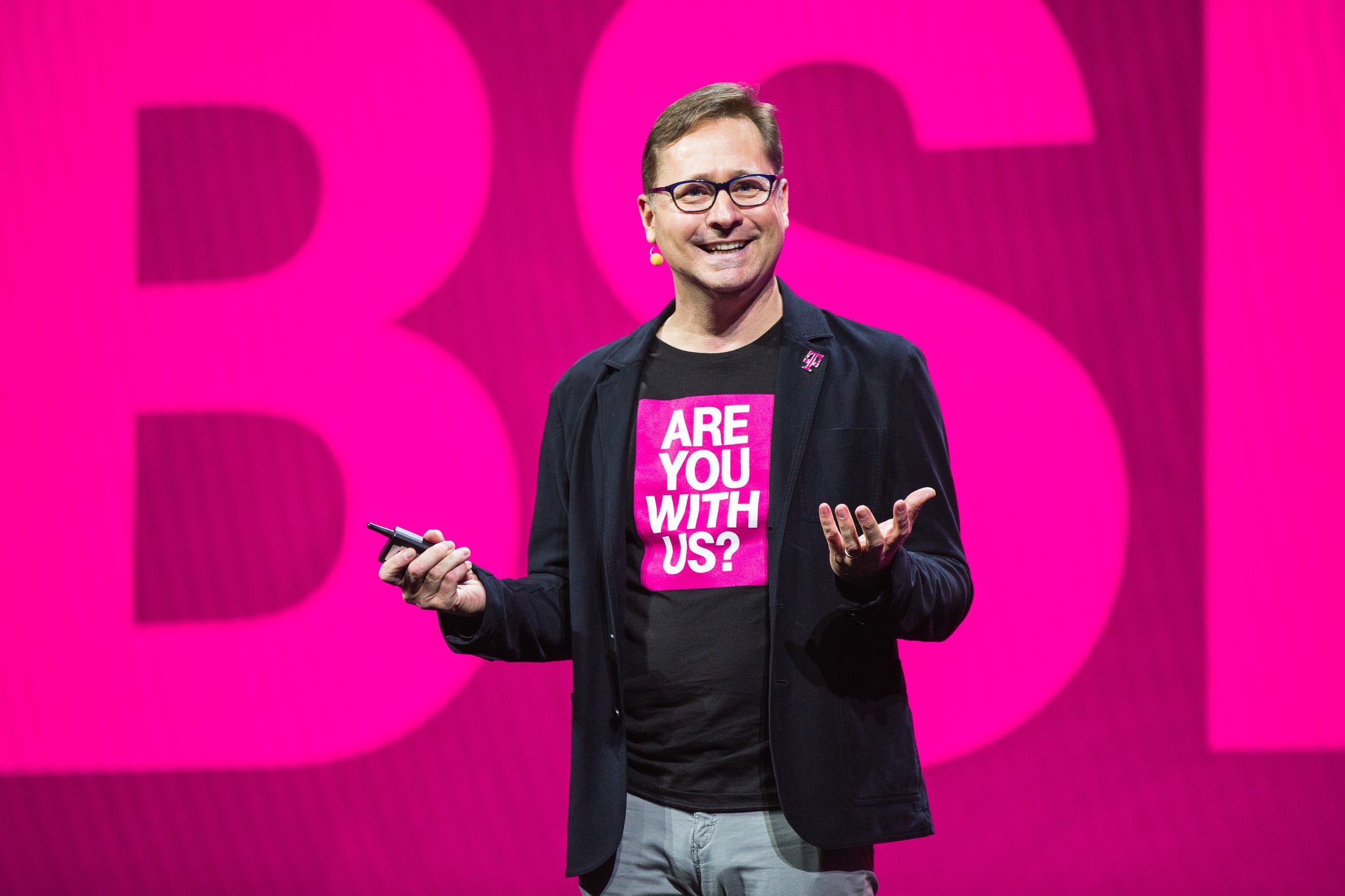
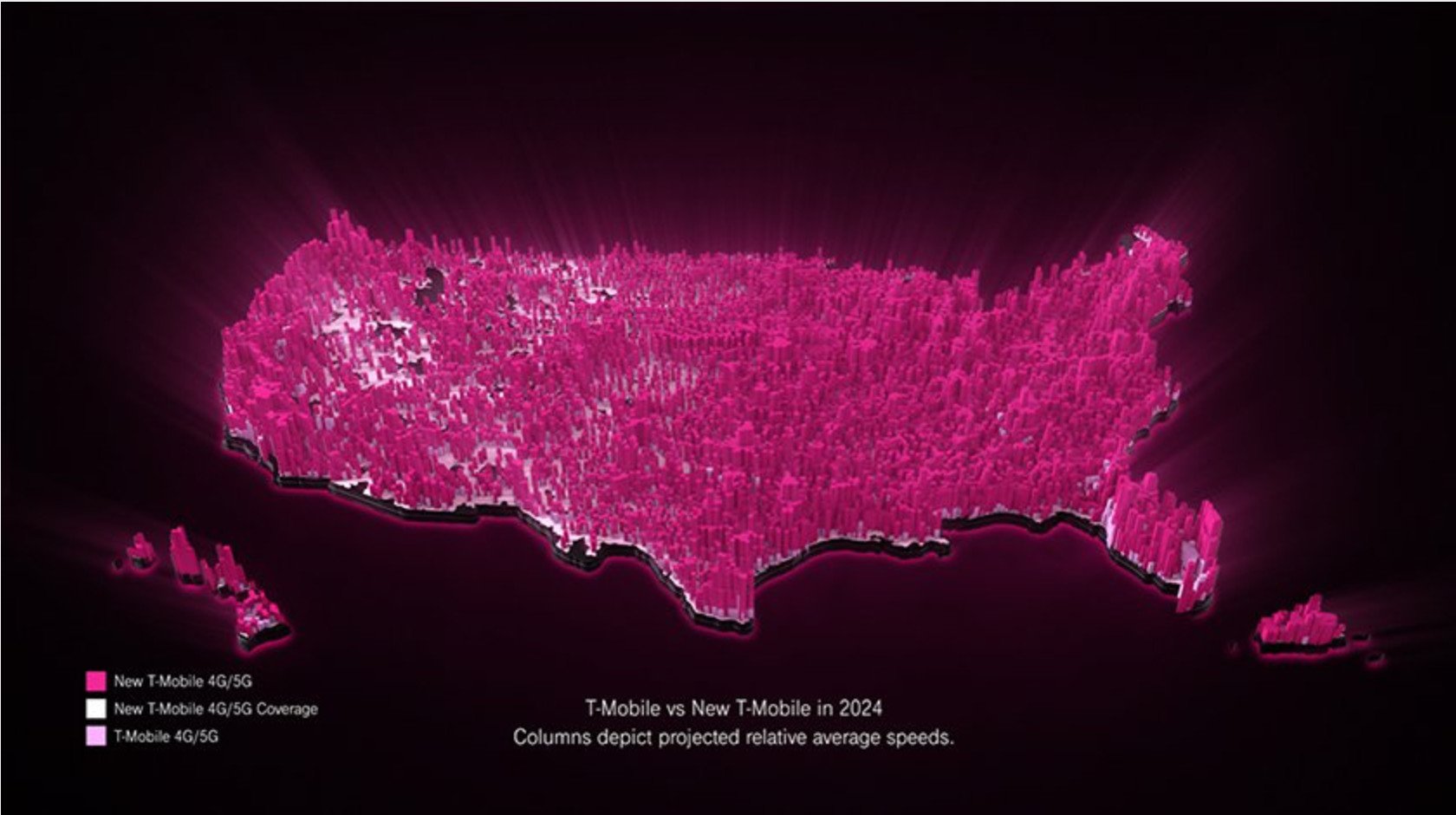

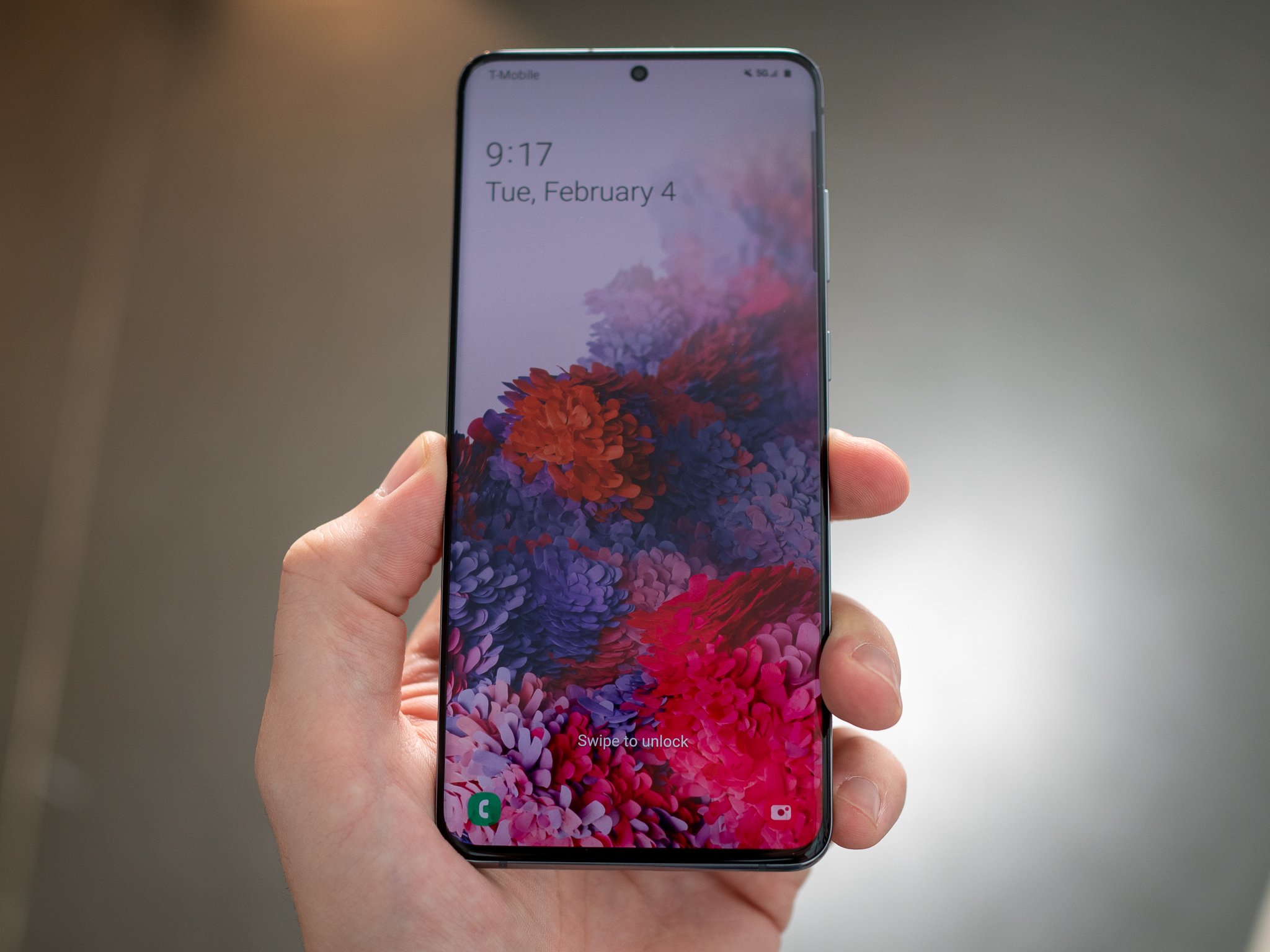
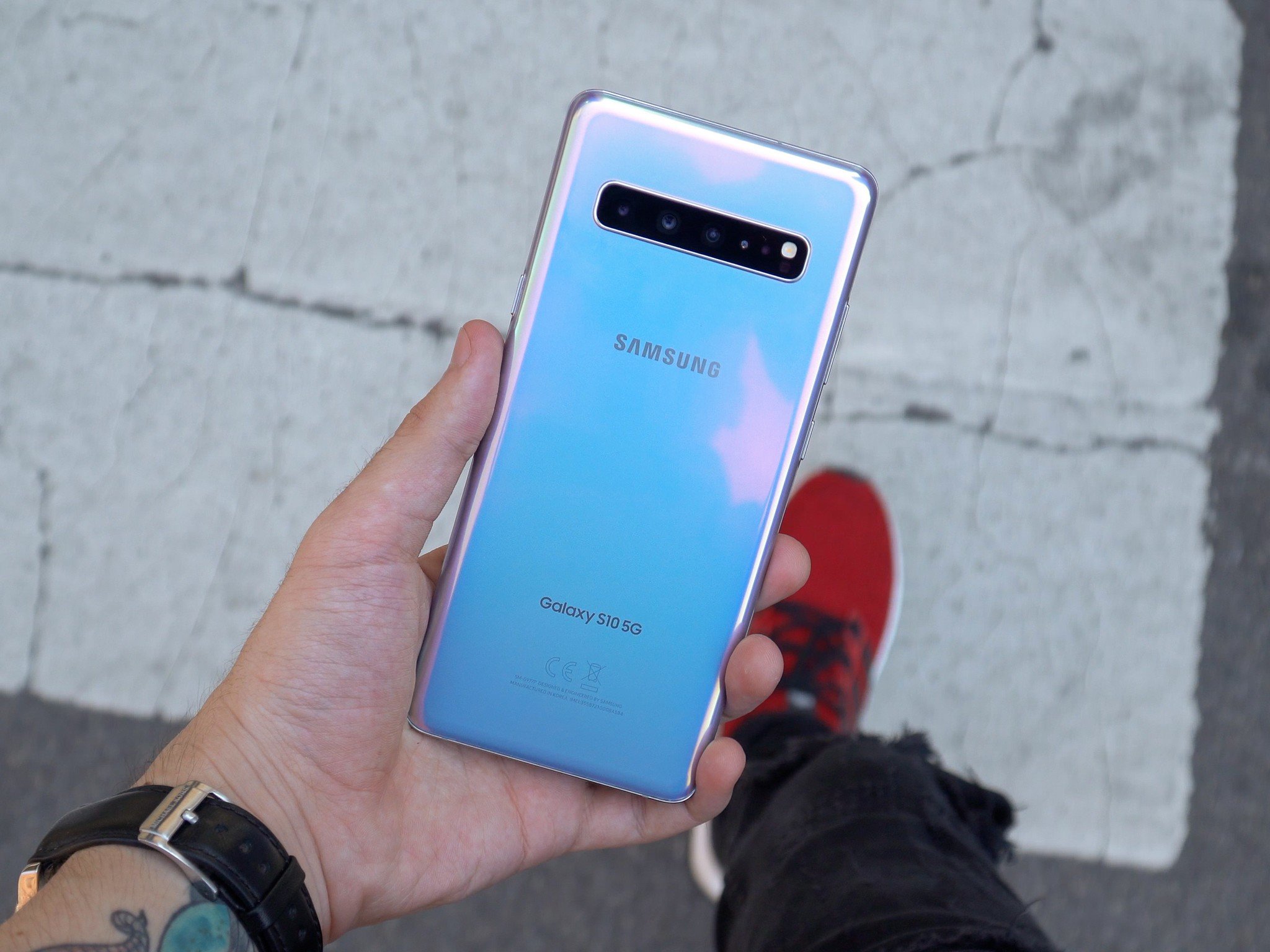
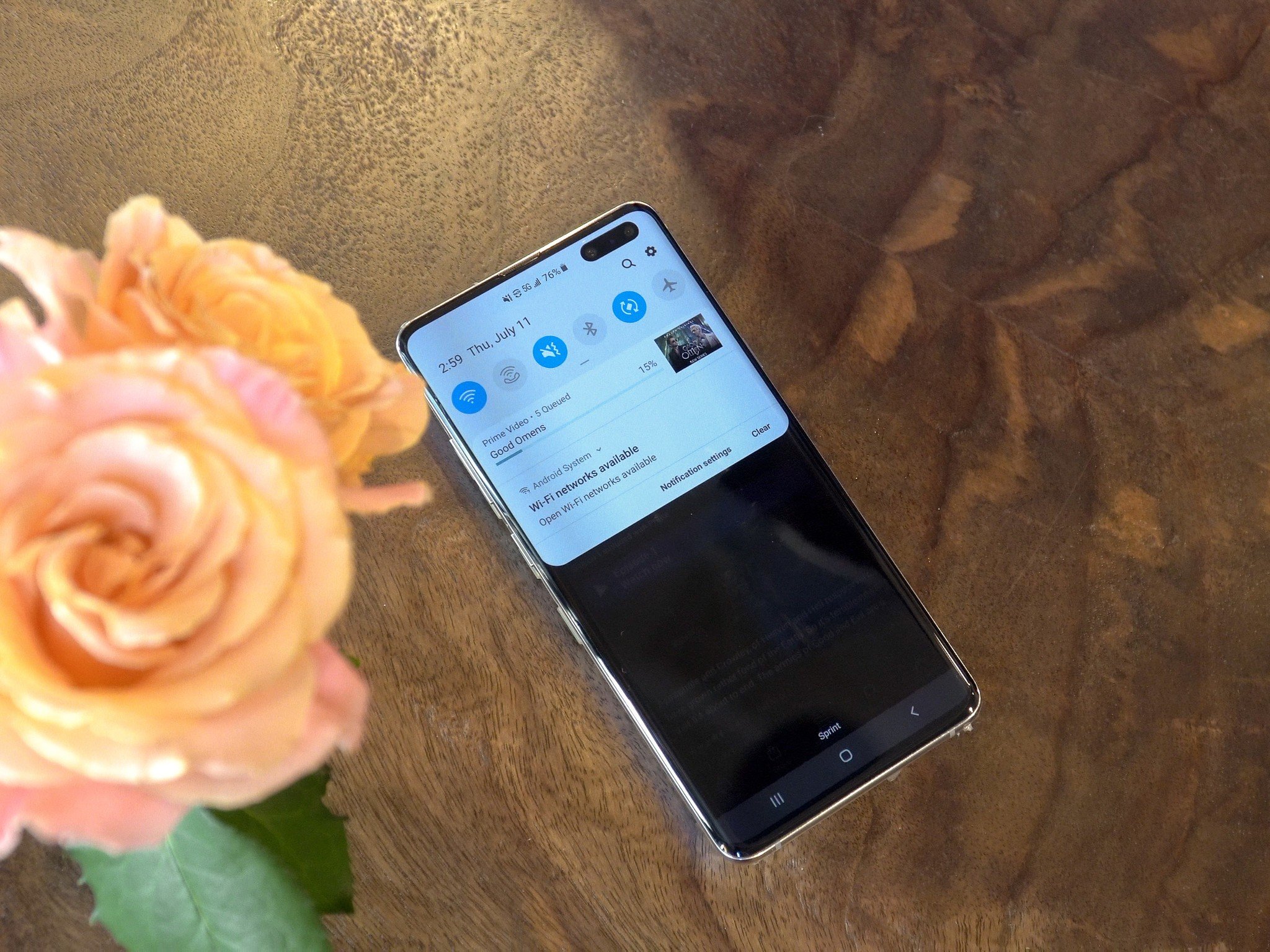

Post a Comment